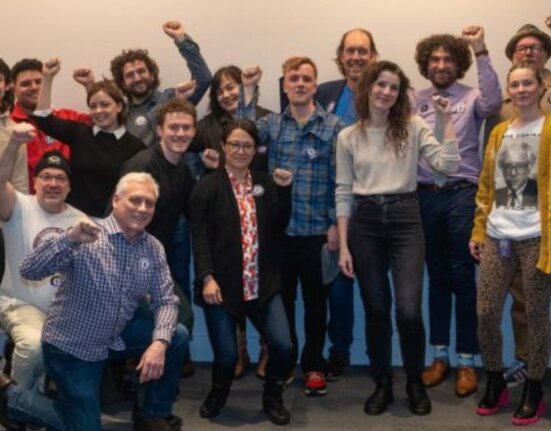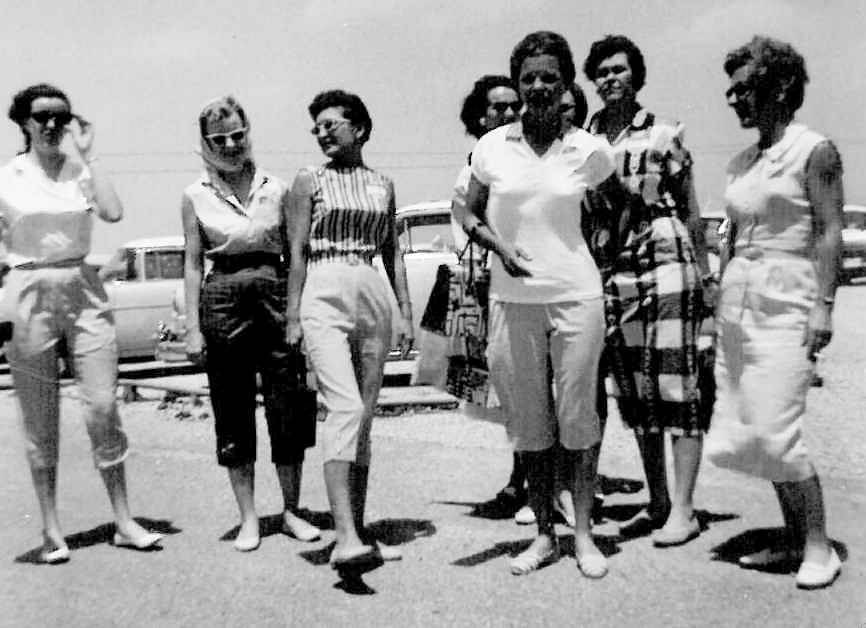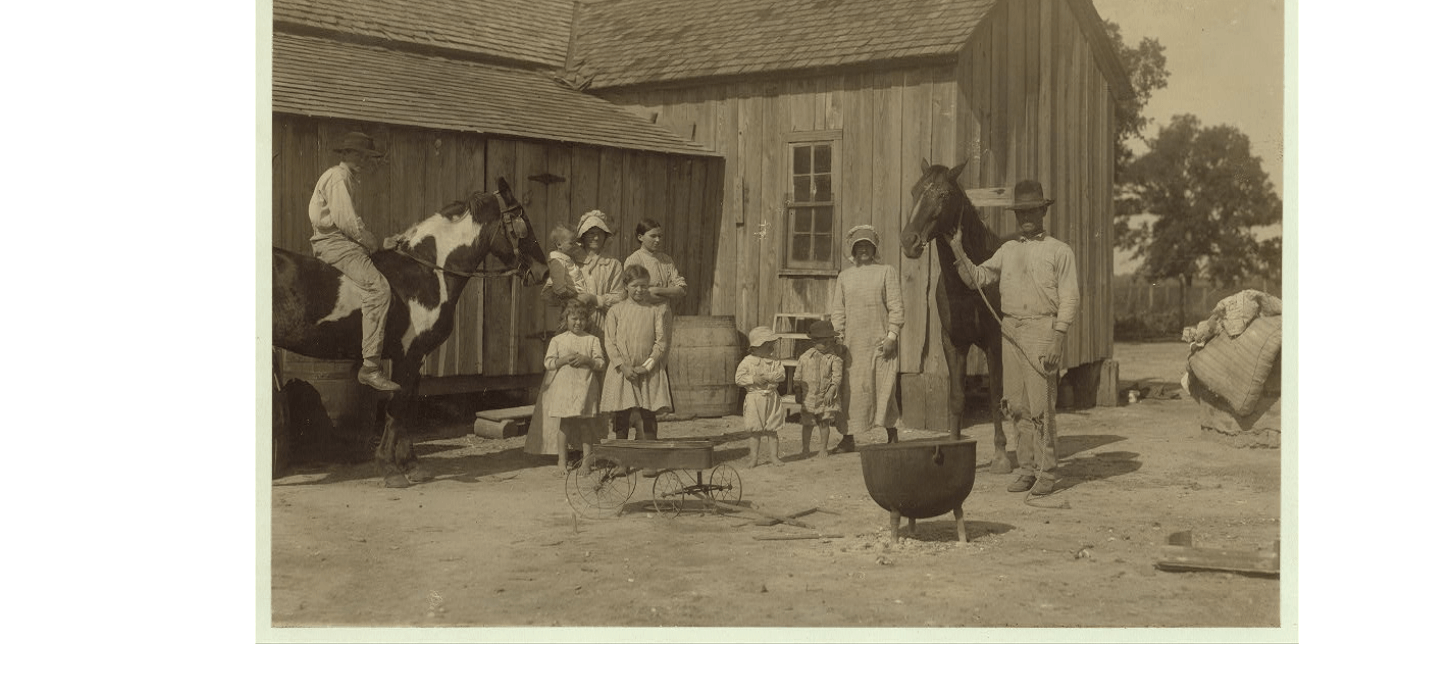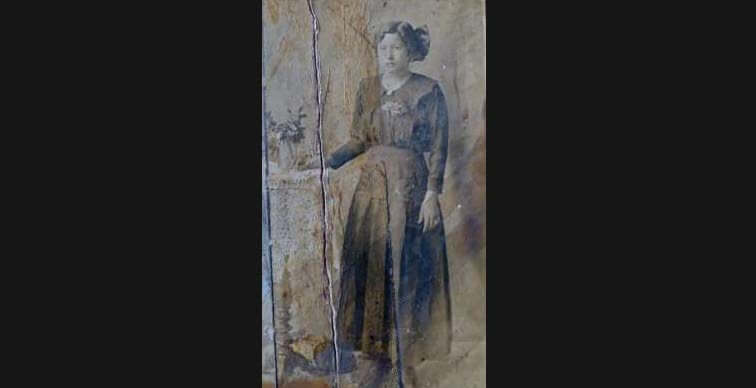Ken Germanson, President Emeritus, Wisconsin Labor History Society
If there was any thought that history is irrelevant in today’s world, that was dispelled at the 31st Annual Conference of the Wisconsin Labor History Society held April 21 in Milwaukee.
“History is powerful,” said Shel Stromquist, the conference keynote speaker, in setting the tone for the daylong event held concurrently with the conferences of the Labor and Working Class History Association (LAWCHA) and the Organization of American Historians (OAH) going on at a hotel some three blocks away. Stromquist, professor of history at the University of Iowa and incoming LAWCHA president, was among the founders of the Wisconsin society in 1981 when he was at the State Historical Society of Wisconsin.
Never far from the thoughts of the more than 80 participants was the fact that Wisconsin workers and their unions are engaged in a historic struggle to preserve basic worker rights and constant references were made to the anti-union actions of Gov. Scott Walker and the Republican-controlled legislature. There were references, too, of the gigantic rallies held in Madison and of the recall elections being conducted in the state to counter the Republican actions.
Speaker after speaker reiterated the belief that working people need to learn from the past in order to respond effectively to the assault against workers and their unions that is so present in today’s world.
Stromquist said that “collaborative action by workers is back,” noting that the Madison rallies of 2011 help to spur on campaigns later in other states. “It’s hard to imagine the Occupy movement without the uprising in Madison,” he said.
He called the current worker uprising the “new Wisconsin Idea,” comparing it to the original “Wisconsin Idea” formulated early in the 20th Century that developed many pioneering social and worker justice developments. The old Wisconsin Idea, he said, looked to the experts (most of them like John R. Commons from the University) while the “new Wisconsin Idea” looks to the power of the workers.
“Workers have seen the vicious attacks by capital on worker rights,” he said, and have responded with popular mobilizations as shown in Madison.
The conference theme was “It’s Not Over: Reclaiming Wisconsin’s Labor Heritage,” and Steve Cupery, WLHS President and a teachers’ union representative, proclaimed in opening the conference that “This is only the beginning. Something is in the wind and the fight will never be over.”
Workers and unions are fighting on many fronts and Sheila Cochrane, secretary-treasurer of the Milwaukee Area Labor Council (AFL-CIO) reminded the audience that “within organized labor, we are all workers.” She said the enemies of labor are seeking to “divide us,” but that it was important to remember that all workers have common goals.
The conference was held in the downtown union hall of the Milwaukee Area Local of the American Postal Workers Union, and Paul McKenna, local president, said the local, formed on Dec. 6, 1906, was the 3rd postal worker unit in the nation. He added that despite being in an “open shop” environment, the local was 96% organized.
He noted how it took the “Great Postal Strike of 1970” to get Congress to provide collective bargaining rights to the workers. Now the union is seeking to convince Congress not to cut back on postal services that would cost tens of thousands of jobs. “We have to focus on Congress now,” he said.
It was obvious from the discussions that it will take mobilization on many levels to maintain and strengthen worker rights, including electoral politics, legislation and direct action.
Mike Konopacki, prominent cartoonist favored by many unions, said the ability to characterize the boss in a humorous or derisive manner can often work to mobilize workers, while Peter Rickman, an organizer with the “We Are Wisconsin” group, said the use of modern social networking strategies, while important, is only a complement to organizing. “New Media and old-fashioned methods have merged,” he said.
The story of the closing of the giant Janesville, Wisconsin, GM plant – at the time the oldest company facility in the nation – is being memorialized in a documentary being prepared for PBS. Brad Lichtenstein, the videographer, showed scenes from the forthcoming film, including one scene depicting Gov. Walker telling Janesville business people of his plan to “divide” the workers in order to weaken their unions.
The conference ended with five activists outlining strategies for restoring Wisconsin to its previous progressive nature.
Activists reflect on the ‘Uprising’ and the future
The 2012 Wisconsin Labor History Society conference ended with five activists discussing what they did and what they learned from participating in the Wisconsin Uprising, along with ideas on how best to restore Wisconsin’s once progressive nature.
One of the youngest presenters was Charity Schmidt, a member of the teaching assistance unions and a doctoral student at the University of Wisconsin-Madison. She said that the growth of the 2011 Madison rallies – and the subsequent recall elections – occurred when the issues went beyond fighting the anti-union actions and involved the Scott Walker Administration’s attack on education, the environment and the social safety net. She said unions need to connect their issues “to the larger picture” and be more inclusive.
Also under the age of 30, Muhammed Mati, who has been involved in the “Occupy the Hood” movement in Milwaukee, also called upon unionists to join in developing a “sense of community” and become also involved in issues like cleaning up neighborhoods and specific issues such as reconnecting young people getting out of prison with jobs. He added: “We’re out of touch with each other.”
Among Wisconsin’s 14 Democratic State Senators who fled the state to stall off passage of the Walker Act 10 that took away collective bargaining rights for public employees was Chris Larson of Milwaukee, who stated that being the youngest and newest member of the Senate put him in a strategic position. He was the only one of the 14, he said, who understood the use of social media, and soon became the “messenger” for the group during their weeks in Illinois. He called for unions to “simplify” the message in trying to reach the public, since few persons get involved until they “get hit by a policy.”
One of the key labor leaders of the state, Michael Bolton, director of District 2 of the Steelworkers (Wisconsin and Michigan), noted that corporations have become global with their only obligation being to serve their shareholders, making it important to educate and involve workers. He said the recent uprising “leaves us where all workingmen and women belong, not in the corporate boardrooms begging for crumbs, but out on the streets standing up against corporate greed, educating our members on the issues and fighting back for a better life.”
It was Lane Hall, a University of Wisconsin – Milwaukee professor, who brought a bit of levity to the discussion as he described (and showed on a screen) the activities of the Overpass Light Brigade that early in the recall effort began showing up on the bridges over the highways in Wisconsin carrying pro-recall signs forming letters lighted by Christmas tree lights. It was necessary to use the lights because the effort was done during evening rush hours when it was already dark during the November and December period. The messages had to be held by ten of more volunteers, since by law they could not be affixed to the overpass railings. “We wanted to make the message visible to all people, not just those who agree with us,” he noted.
Like so many of the efforts in Wisconsin, the Overpass Light Brigade activities were photographed, videotaped and reported by media throughout the nation, helping to show the widespread spirit behind the recall effort.
From: Ken Germanson, President Emeritus, Wisconsin Labor History Society
313 E. Plainfield Ave., Milwaukee WI 53207
414-687-6954
advoken@sbcglobal.net






